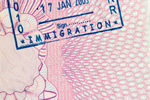Tips for expats on buying a home in the Netherlands

Tips for expats on buying a home in the Netherlands
Getting a mortgage isn’t easy as regards the bureaucratic necessities, even for citizens, making it even more difficult for expats not exactly fluent in the Dutch language and without a basic grasp of Dutch law. However, with many incomers now deciding on a longer stay or even permanent residence if possible, it’s no surprise that buying a home is part of the plan. It’s actually a good idea financially, especially for expats with families, as rentals in the country are now extremely expensive, far more so than the cost of monthly mortgage payments.
In addition, money spent on renting a home is gone forever, but after a 30-year mortgage comes to an end, there’s bound to be capital appreciation adding up to far more than the mortgage payments. Now is a good time to buy a home in the Netherlands, as interest rates are comparatively low, and there’s always the fact that, although rentals are certain to increase even more over the years, monthly mortgage payments are a fixed amount. As regards getting started, using a bilingual mortgage advisor is the sensible option.
Deciding on the best location for your new home is your next step, with personal preferences coming first and common sense hopefully applying to your choice of house. For many expats, living in a historical 17th century dwelling is a dream, but repair and renovation costs can turn dreams to nightmares within a short period of time! Making an offer should be done quickly, as there’s a lot of competition in the present-day property market. Offering slightly more than the asking price can work well, and your offer should be made by email, believe it or not! Second thoughts are allowed, but only within a three day period after your offer was made.
Due to documentary requirements and potential language problems, using a mortgage advisor is the easiest way forward. The long list includes your employer’s declaration of your annual income including salary, fringe benefits and bonuses, your monthly pay slip, copies of your purchase agreement, an original valuation, a copy of the survey and more. Your advisor will search out the best mortgage offers based on your information and, with your agreement, get things going. Once your chosen bank accepts your application and any financial business is done, your recommended notary and an interpreter if necessary will have you sign off on the paperwork and give you the keys to your new Dutch home.
Related Stories:
- Expats find peace in the covid-19 refuge of Dahab town - July 20, 2020
- Expats in Malaysia still banned from overseas travel - July 17, 2020
- Asian tiger economies reach out to expats in Hong Kong - July 16, 2020
- China hits its expats with 45 per cent tax on overseas earnings - July 15, 2020
- Foreigners and expats condemn Thailand attractions dual pricing - July 14, 2020
Latest News:
- Tips on a trouble-free relocation as an expat overseas - July 20, 2020
- Expats find peace in the covid-19 refuge of Dahab town - July 20, 2020
- Is Kuwaitization the unintended result of the oil price crash? - July 20, 2020
- Expats unhappy abut changes to Korean points-based visa system - July 17, 2020
- Chiang Mai and Bangkok no longer bargain locations for expats - July 17, 2020
- Expats in Malaysia still banned from overseas travel - July 17, 2020
- Vietnam welcomes expats to its safe, affordable lifestyle - July 16, 2020
- Asian tiger economies reach out to expats in Hong Kong - July 16, 2020
- HSBC Asia to cut back on internal expat relocations - July 16, 2020
- Tips on integrating for newly-arrived expats - July 15, 2020


